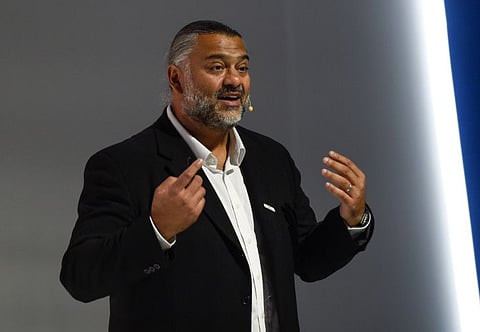Arab Media Forum: Will the metaverse turn journalism into a two-way process?
UK strategist Adipat Virdi says media must rethink its engagement with audiences

Dubai: Metaverse can enhance media engagement with the public by creating an immersive experience, where users will be transformed from being third-person passive media consumers to first-person participatory stakeholders.
This was given emphasis by UK-based global immersive strategist Adipat Virdi during an exclusive interview with Gulf News on the sidelines of the 20th Arab Media Forum (AMF) on Wednesday at Madinat Jumeirah, Dubai.
Virdi said: “We need to look at how people are consuming content. There is a need to advance the way we create audience engagement. The current digital form of journalism – where there is only a screen – is a third-person passive engagement. It’s a one-way process. But in metaverse, the user is sent to a virtual world, where they can engage with other digital users.”
The interest in the features of metaverse has escalated in recent times. In a nutshell, metaverse is defined as an open, three-dimensional virtual world, where users can enter it as digital avatars and interact with other users. In simple terms, Virdi described it as the “next evolution of internet in 3D”.
“The spatial element of metaverse allows us to walk around in the digital world and be able to engage with other people from around the world – and metaverse is essential for media because it is all about connection,” Virdi explained.
Narrative architecture
Virdi, who was the speaker during an AMF break-out session titled ‘Arab Media: Journey Towards the Metaverse’, further described the connection as building a narrative architecture, where human experiences are shaped into stories.
“Metaverse is not a one-way process; creating connection is the key engine as it is a story-based platform,” Virdi noted, adding the users themselves are involved in creating the metaverse ecosystem.
He cited as an example the so-called Gen Z (those born from 1997 to 2012) who consume media in personalised, decentralised and gamified way. “They are the people who are ready to adopt to metaverse and if we don’t do it now, we will not be able to catch up with them,” he added
Call to action
According to Virdi, another opportunity for the media to take advantage of metaverse is that it is not only about expressing opinions but it can also be a platform to call to action because “metaverse allows participation and there is a notion of transparency in metaverse as an immersive technology.
Virdi, however, also pointed out that governance and regulation are needed to safeguard public safety and interest in metaverse. He added: “When websites first came out,everyone expressed their agenda; when apps came out, everyone also expressed their agenda. Metaverse is a not a new invention but we’ve learned lessons how people engage with media content. Now, it has to be more open and more engaging.”
Overcoming limitations
Virdi also recognised the limitations of metaverse, which is still at its nascent stage. “Of course not everyone would like to wear a block (VR or virtual reality headset) on their face,” he noted, adding: “But technology is evolving and in the next five to six years there will be wearables like contact lenses that will offer seamless technology.
“We have to evolve the way we think about engagement and it is already here, whether we like it or not,” he continued.
Virdi cited as proof of viability of metaverse his five-year old son who interacts with his friends living in Singapore by Roblox, which is regarded as an early metaverse, where kids – represented by their avatars – enter a three-dimensional world and interact with each other.
Virdi noted the main element of Roblox is connection and this in one word is what metaverse is all about.



